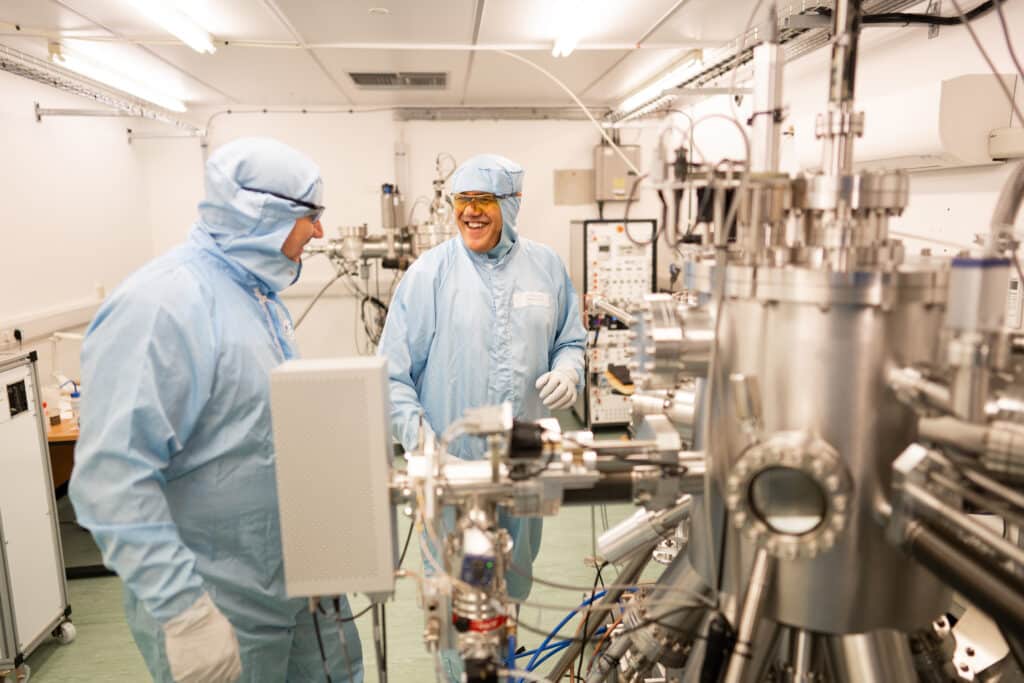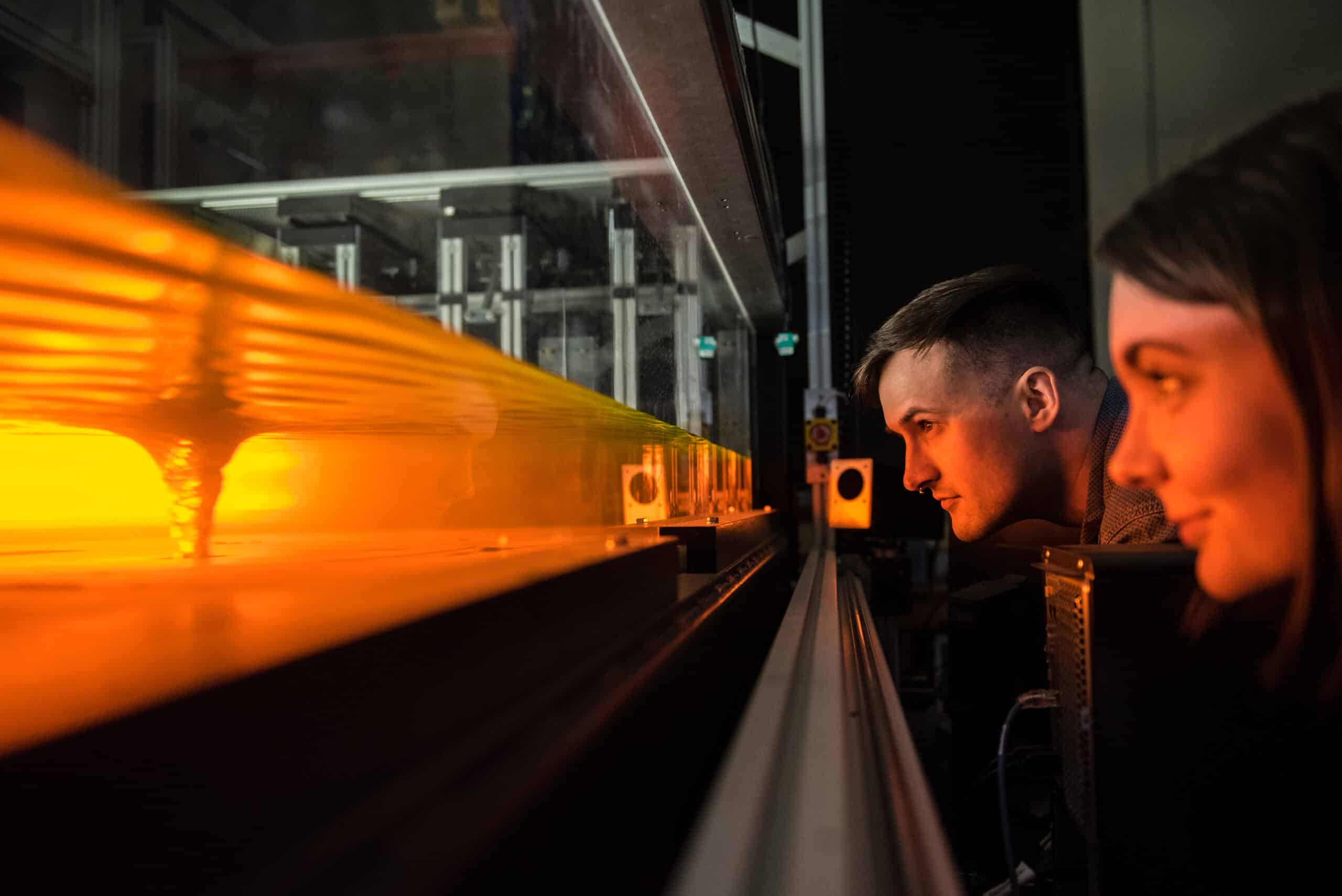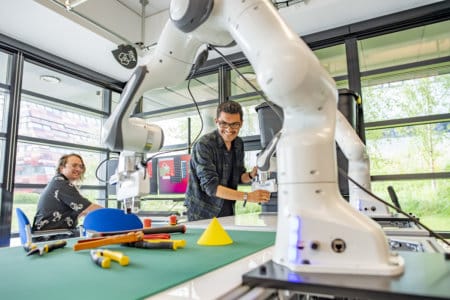YouTube is the go-to place to learn something new. But can you find answers to some of the most fundamental questions about nature there? The answer is yes if you’re subscribed to channels that star prestigious university professors. The University of Nottingham’s School of Physics and Astronomy has professors who often appear on award-winning YouTube channels. These include Sixty Symbols (affiliated with the university), Numberphile and Deep Sky Videos, all run by filmmaker Brady Haran.
On these channels, UoN professors are captivating their global audience. Sixty Symbols has over 100 million video views and more than 800,000 subscribers — which speaks to how well these professors share their expertise on cutting-edge research topics in physics, astronomy, and mathematics, informing curious minds everywhere, from high school students and undergraduates to anyone anywhere with a love of science.
The School of Physics and Astronomy at Nottingham is ranked seventh (ahead of Oxford) out of 44 UK physics departments in the latest Research Excellence Framework assessment and second only to Cambridge over the last three assessments since 2008 for research quality. It is the home of the Nobel Prize for the development of MRI body scanners, which have already transformed the lives of over 500 million people worldwide, and remains a world leader in this area of medical physics. It also hosts the Nottingham Centre of Gravity, a new research centre that seeks to understand the nature of our gravitational universe, from quantum gravity to dark matter and dark energy. Recently, Professors Matt Brookes and Clare Burrage both won prestigious Blatnavik awards for their research into medical imaging and dark energy respectively.
Those inspired by these professors and their achievements and who want to build a career in science should head to the School of Physics and Astronomy. It’s a great starting point as you can work directly with passionate, award-winning researchers and professors. The school stands out for offering research-led undergraduate projects with these professors as your supervisors. These cut across a wide range of scientific ideas and disciplines, including astronomy, cosmology, quantum technologies, advanced materials, and medical imaging.
Take Prof Tony Padilla, author of the popular science book, “Fantastic Numbers and Where to Find Them” and regular presenter on Sixty Symbols. His most popular and controversial video on the sum of the natural numbers has over 9 million views, but like most of the professors at Nottingham, he also runs third and fourth-year Physics MSci student projects, like “An Introduction to String Theory”, which exposes students to the mystery of quantum gravity for the first time, and “ISCOs”, where students are invited to explore the real physics behind the film Interstellar. But the most popular project of all is run by cosmologist Dr Adam Moss, who helps students use machine learning and super-computers to create simulations of the universe.
The Physics MSci is a unique fourth year programme where you’ll focus on fewer but more specialised areas reflecting the university’s expertise, from nanoscience ot technology. Assessment is continuous and there are no exams. Instead, you’ll complete a year-long research project, alongside group work, projects, delivering seminars and independent learning. The programme is accredited by the Institute of Physics and 98% of the university’s research is classed as “world-leading” (4*) or “internationally excellent” (3*).
The researchers responsible for these awards get just as much joy from working with their students. In Padilla’s “Advanced Gravity” module, students were encouraged to get creative with a video or write a magazine article about gravity-related topics. “I didn’t realise I’d be playing ‘A Night to Remember‘ by Shalamar and dancing on the landing because one student had used it on the soundtrack,” he says, “Frankly, I was blown away by some of the stuff the students came up with. I was beyond impressed.”
The Physics BSc is shorter — it spans three years, instead of four — but is just as impactful. Many of the University of Nottingham physics programmes have the same first-year courses giving you the flexibility to transfer between programmes up until the end of Year 2. As with the MSci, there are opportunities to take on a paid summer internship. This might be with a researcher in the school, like astronomer Dr Emma Chapman, author of “First Light: Switching on Stars at the Dawn of Time.”, who worked with students on the search for extraterrestrial life. Or it could be with an external company or industry partner.
Physics MSci graduate Danny Wray was offered a graduate placement as a Software Engineer for Capital One after a three-month internship with the company. “I would say that one of the biggest things that a physics degree teaches you rather than just physics is problem-solving and how to approach a problem and tackle it in a methodical and systematic way,” he says.

Friendly and supportive professors make all the difference in your learning experience. Source: University of Nottingham
Like Wray, many graduates have gone on to have outstanding careers. About 90% of the 2020/21 cohort were in highly skilled work or further HE or professional study within 15 months of graduation, and 94.6% responded that they had “positive outcomes.” The average salary was 30,834 British pounds.
Prof. Brookes was an undergraduate at Nottingham and is now an award-winning Professor of Physics in medical imaging within the school. He is a founder of Cerca Magnetics, one of Bloomberg’s spin-outs to watch. Competitive paid summer research internships provide a launchpad for students to carve similar paths to success. You spend eight to 10 weeks working on original research with one of the school’s research groups. There is also the optional paid industrial placement year. As the school is a White Rose Industrial Physics Academy member and has a dedicated Employability and Partnerships Development Officer, you will have the support you need to find the right opportunities to develop the skills you need for your future career.
Physics MSci student Polly Mitchell scored an optional placement year with ISIS Neutron and Muon Source, a world-leading centre for research at the Science and Technology Facilities Council. She has been offered a part-time consultancy role with STFC following the placement. “It’s really fun,” she says. “You’re earning a bit of money. You meet lots of new people, and you get a lot more confident in your own work. I think it does make you a lot more attractive to employers, too.”
Learn more about the University of Nottingham’s School of Physics and Astronomy here.
Follow the University of Nottingham on Facebook, Twitter, LinkedIn, Instagram and YouTube.













